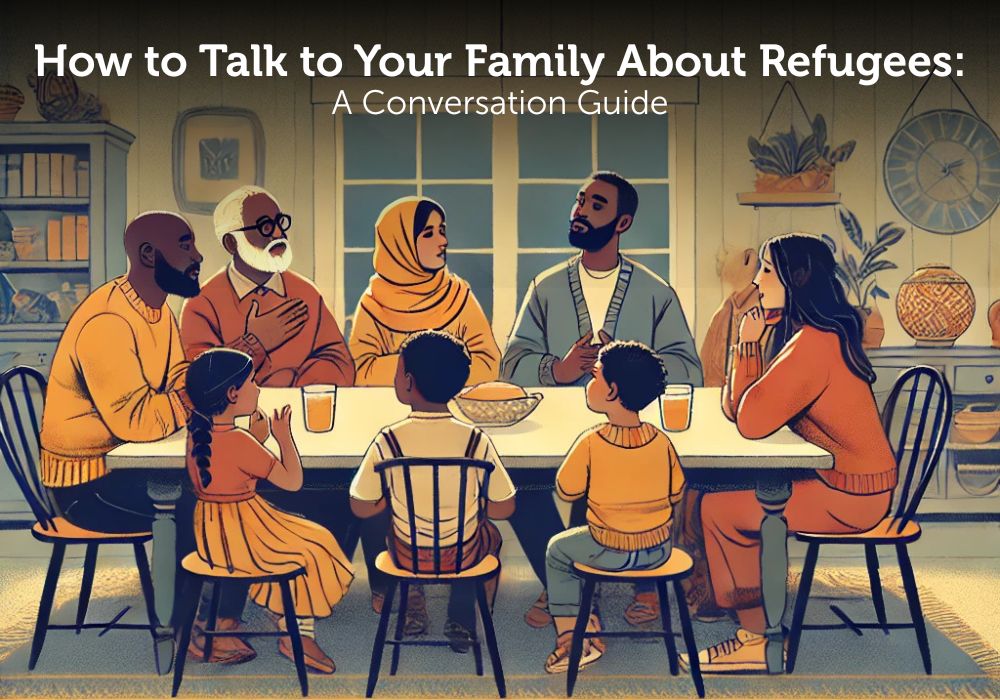Like us, you know that refugees are ordinary people who have been forced to leave their homes behind in search of safety. But with misinformation on the rise, how can you share the facts with your family, friends and loved ones?
Here is a conversation guide to answer any questions your community may have about refugees and other newcomers.

This image was generated using artificial intelligence and is intended for illustrative purposes only.
If someone says: “Refugees take jobs away from American-born citizens.”
Try responding: “Refugees help to fill critical labor gaps in the U.S. economy. According to the U.S. State Department, refugees fill essential roles in manufacturing, healthcare, retail, tourism, transportation and education—industries critical to the nation’s economy. In total, immigrant workers have been responsible for 88% of the U.S. labor force growth since 2019.”
If someone says: “Refugees are a burden on the economy. We should focus on helping people born in America first.”
Try responding: “There’s no either/or solution. Refugees greatly contribute to the communities that welcome them when they arrive in the United States. They’re friends, neighbors and business owners, helping to give back much more than they receive. Of refugees who have been in the country for 20 years or more, 89.9 percent have become citizens, continuing to give back to their communities, pay taxes and contribute to the economy.”
If someone says: “Refugees are a danger to our communities. How do we know if they’re vetted properly?”
Try responding: “Refugees undergo a thorough screening process that can take up to two years before they are approved for travel to the United States. Only 1% of people seeking safety around the world are actually able to access resettlement to countries like the United States, and those that do first have to complete biometric and background checks. Because of this extensive vetting process, refugees actually have a much lower crime rate than American-born citizens.”
If someone says: “We can’t just let anyone in who wants to come to the United States. How do we even know that refugees are fleeing safety and aren’t just looking for a handout?”
Try responding: “The vast majority of refugees live in countries that border their own, and 32% of the world’s refugees are hosted in five countries—none of which include the United States. Iran, the top refugee-hosting country, has welcomed 3.8 million individuals, followed by Türkiye and Colombia.
If someone says: “There’s no space or resources for more refugees—we’re already overwhelmed.”
Try responding: “Refugees are resettled in communities based on local capacity and resources, in partnership with state and local governments, nonprofits, and faith groups. Their contributions actually help strengthen local economies and fill crucial gaps, particularly in aging or shrinking communities.”
This #WorldRefugeeDay, imagine a world #WithoutRefugees — a world missing courage, creativity, and community. Join us in taking action to restore resettlement, fund life-saving programs, and stand for dignity and hope for millions still seeking safety. Make a donation here in support of refugees and other newcomers.
